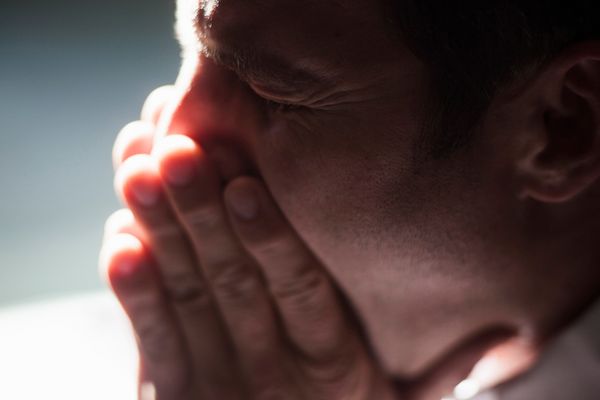You coax your culinary masterpiece onto a plate and begin to cover it in freshly ground pepper. Then a familiar feeling begins to build. Your nose twitches, your eyes water — and you convulse into a room-rattling sneeze.
The way you sneeze when you're home alone is entirely different from when you're in a meeting with your boss or at dinner with a date. Then, your sneeze is less roaring lion and more squeaking mouse. Holding in your sneeze when you're with other people seems like the polite course of action. But could it kill you?
Advertisement
One small 2013 study found that a sneeze can propel air out of your nasal canal at close to 10 mph (4.5 meters per second). During a sneeze, all the air pressure that has built up in your lungs will try to escape through your nose. When you block the air's escape route by pinching your nose or mouth during a sneeze, it forces the air into your ears. This pressurized air will travel back through the ears' Eustachian tubes and into the middle ear, where it could cause damage, such as a ruptured eardrum. It also could lead to hearing loss or prolonged dizziness [source: University of Arkansas Medical Services].
Holding in a sneeze could affect more than your ears. Stifled sneezes have caused blood vessels to break in the eyes and resulted in spells of incontinence. Other possible effects? You could cause injury to your diaphragm, a horizontal muscle that stretches across the bottom of the rib cage. In addition, a sudden elevation in blood pressure because of a blocked sneeze could cause blood vessels in the brain to rupture. A particularly violent pent-up sneeze could cause injury to the neck or, for someone who's recently had sinus surgery, force air into the space around the eyes and cause them to bulge out (but not dislocate completely). In the most extreme circumstances, holding back a big sneeze could cause a stroke and lead to death.
Your best bet is to let your sneezes fly. They serve an important role by clearing your nose of bacteria and viruses. You can still maintain decorum; use a tissue or the crook of your arm to cover your mouth when you sneeze. Sure, you've made some noise, but you've also spared those around you from a shower of germs.
Advertisement



